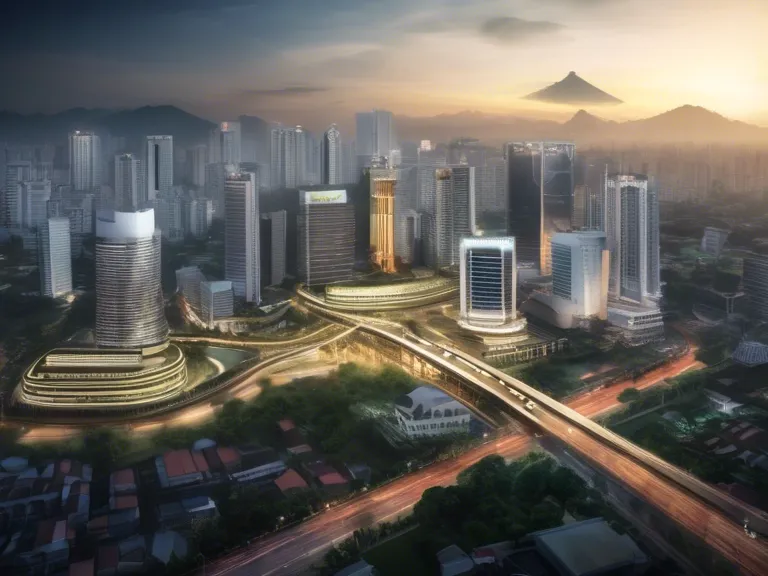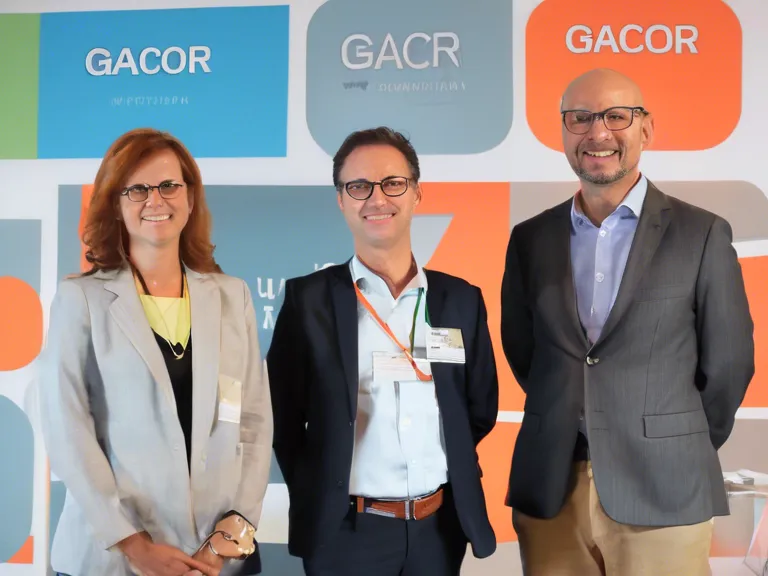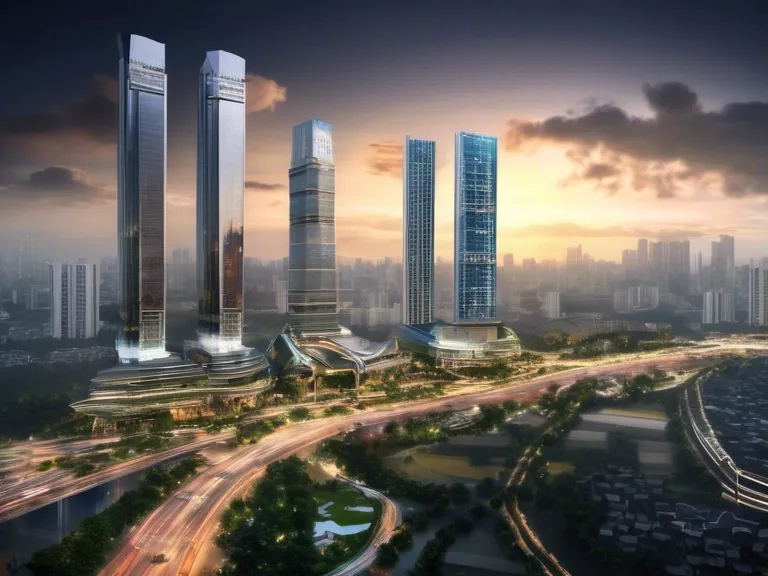
Introduction
Indonesia's ambitious plan to develop a new capital city marks a significant milestone in the country's history. The decision to relocate the capital from Jakarta to a new site on the island of Borneo presents a unique opportunity to shape the future trends of urban development, sustainability, and governance in the region. This article delves into the key aspects of this monumental project and its potential implications for Indonesia's future.
Urban Planning and Infrastructure Development
The new capital city is envisioned as a smart, sustainable, and technologically advanced urban center that will address the challenges posed by rapid urbanization and environmental degradation in Jakarta. Urban planners and architects are tasked with designing a city that prioritizes green spaces, efficient transportation systems, and resilient infrastructure. The development of the new capital offers an opportunity to implement innovative urban planning strategies that can serve as a model for other cities in the region.
Sustainable Development and Environmental Conservation
One of the primary goals of the new capital project is to promote sustainable development and environmental conservation. The site of the new capital is located in a region known for its rich biodiversity, and efforts are being made to ensure that the development is carried out in a manner that minimizes its impact on the environment. Initiatives such as green building practices, renewable energy sources, and waste management systems will play a crucial role in shaping the sustainability of the new capital city.
Economic Growth and Investment Opportunities
The development of the new capital city is expected to stimulate economic growth and attract investment to the region. The construction of key infrastructure such as airports, roads, and utilities will create employment opportunities and drive economic activity. Additionally, the establishment of government institutions and commercial districts in the new capital will further boost economic development and provide a conducive environment for businesses to thrive.
Social Inclusion and Community Engagement
As the new capital city takes shape, it is essential to prioritize social inclusion and community engagement in the planning and development process. The needs and aspirations of local communities, as well as marginalized groups, must be taken into consideration to ensure that the city is inclusive and welcoming to all its residents. Initiatives such as affordable housing, public spaces, and cultural heritage preservation will contribute to creating a vibrant and cohesive community in the new capital.
Governance and Public Administration
The relocation of the capital presents an opportunity to reform governance structures and improve public administration in Indonesia. The new capital will house government offices, parliament, and other key institutions, providing an opportunity to modernize administrative processes and enhance transparency and accountability. By leveraging technology and best practices in governance, the new capital city can set a new standard for efficient and responsive public administration in the country.
Conclusion
The development of Indonesia's new capital city represents a transformative opportunity to shape the future trends of urban development, sustainability, and governance in the region. By focusing on urban planning, sustainable development, economic growth, social inclusion, and governance, the new capital has the potential to become a model city that embodies the values and aspirations of Indonesia. As the project progresses, it will be crucial to engage stakeholders, incorporate feedback, and adapt to evolving challenges to ensure the success and sustainability of the new capital city.



